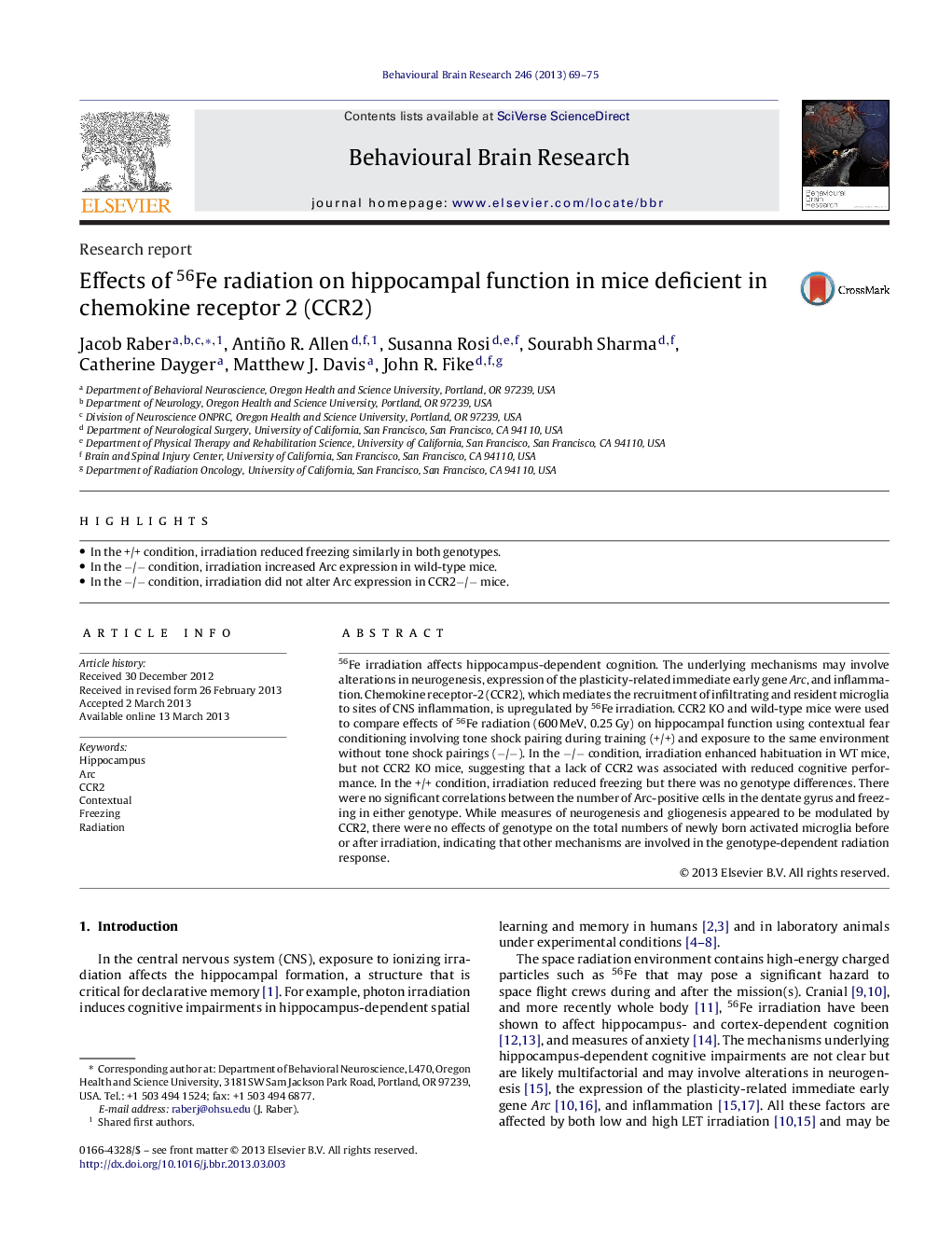| Article ID | Journal | Published Year | Pages | File Type |
|---|---|---|---|---|
| 4312706 | Behavioural Brain Research | 2013 | 7 Pages |
•In the +/+ condition, irradiation reduced freezing similarly in both genotypes.•In the −/− condition, irradiation increased Arc expression in wild-type mice.•In the −/− condition, irradiation did not alter Arc expression in CCR2−/− mice.
56Fe irradiation affects hippocampus-dependent cognition. The underlying mechanisms may involve alterations in neurogenesis, expression of the plasticity-related immediate early gene Arc, and inflammation. Chemokine receptor-2 (CCR2), which mediates the recruitment of infiltrating and resident microglia to sites of CNS inflammation, is upregulated by 56Fe irradiation. CCR2 KO and wild-type mice were used to compare effects of 56Fe radiation (600 MeV, 0.25 Gy) on hippocampal function using contextual fear conditioning involving tone shock pairing during training (+/+) and exposure to the same environment without tone shock pairings (−/−). In the −/− condition, irradiation enhanced habituation in WT mice, but not CCR2 KO mice, suggesting that a lack of CCR2 was associated with reduced cognitive performance. In the +/+ condition, irradiation reduced freezing but there was no genotype differences. There were no significant correlations between the number of Arc-positive cells in the dentate gyrus and freezing in either genotype. While measures of neurogenesis and gliogenesis appeared to be modulated by CCR2, there were no effects of genotype on the total numbers of newly born activated microglia before or after irradiation, indicating that other mechanisms are involved in the genotype-dependent radiation response.
